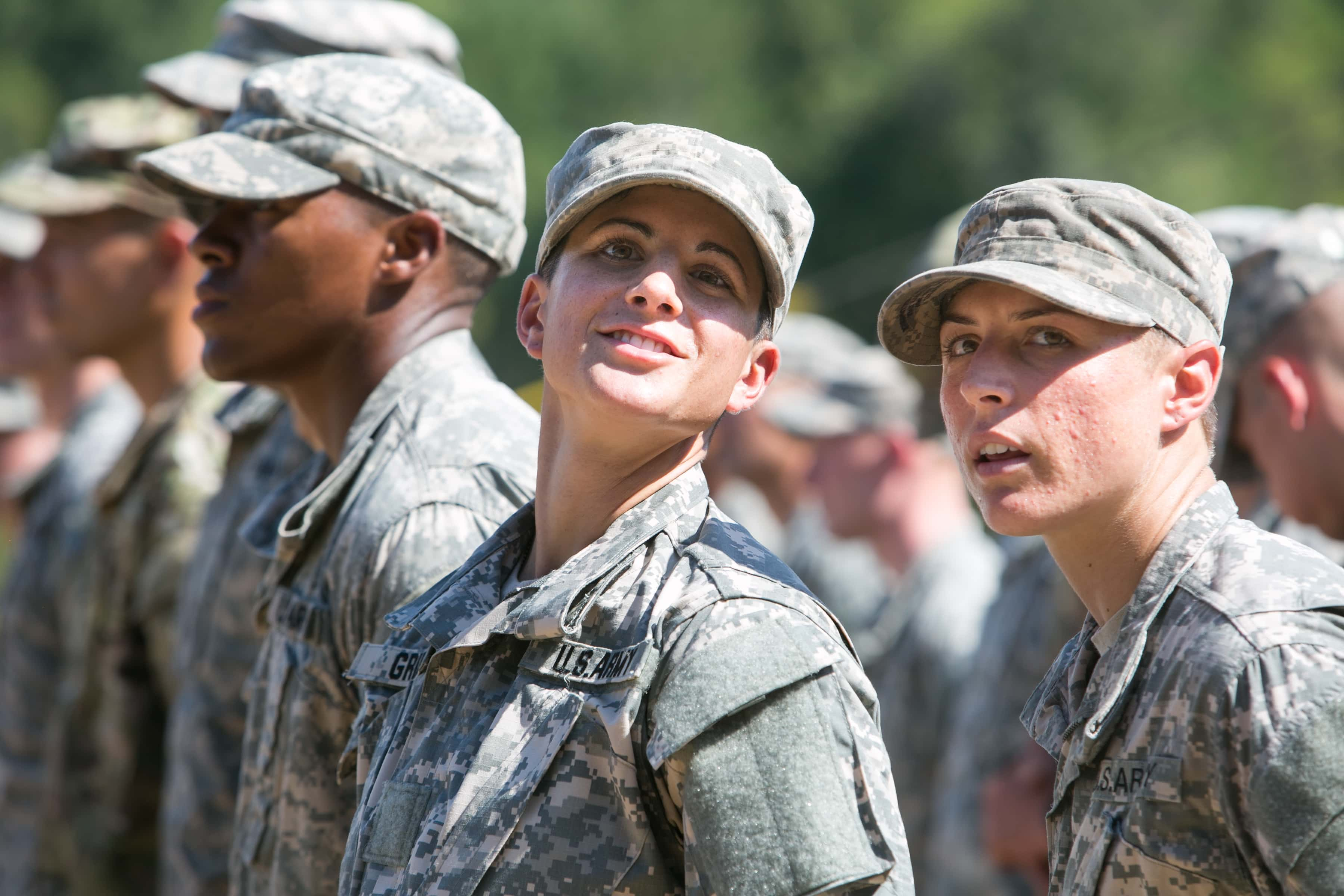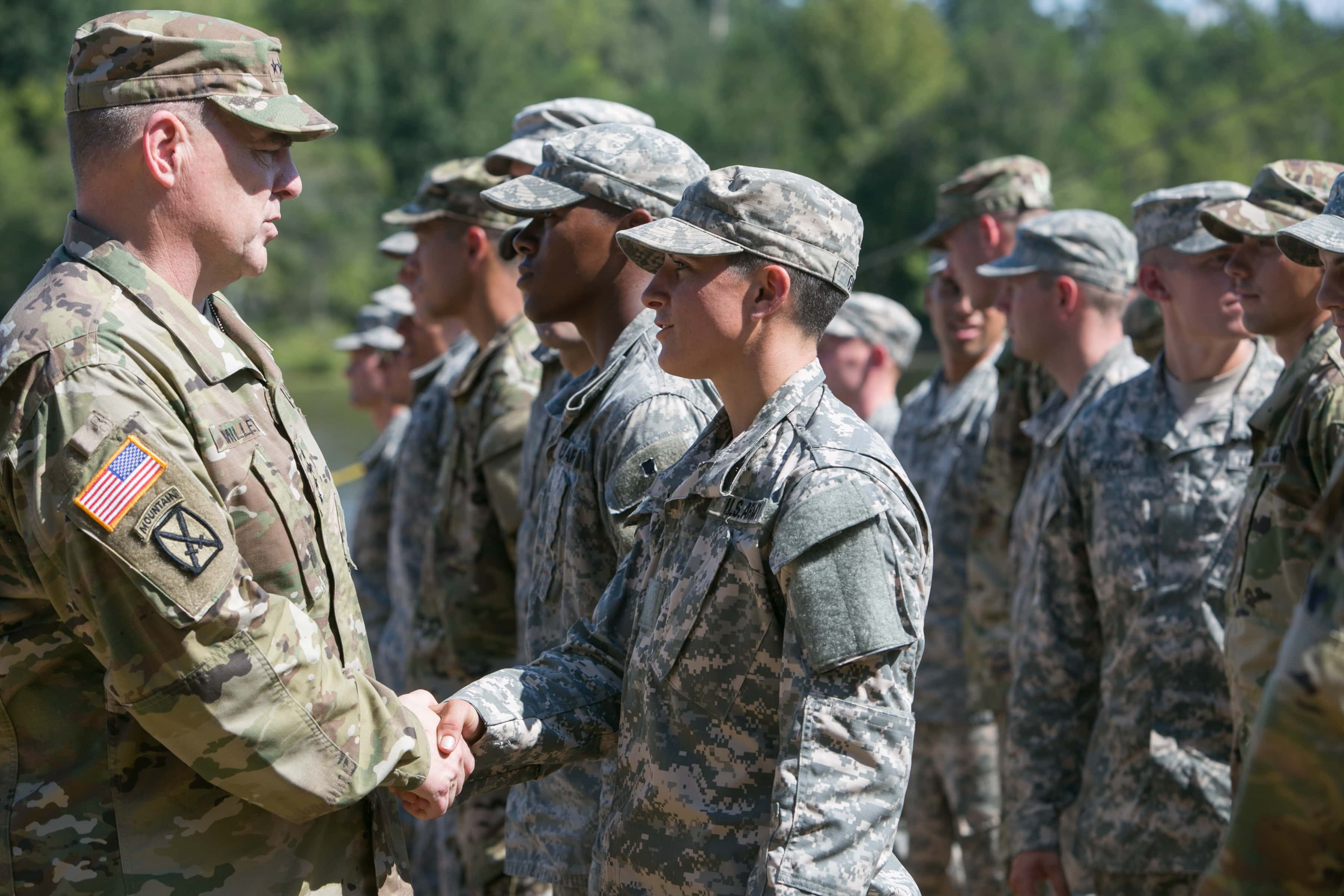Who is Kristen Griest? Army's first female infantry officer warns against easing fitness standards for women

The US Army's first female infantry officer has lashed out against the easing of fitness standards for women, arguing that all soldiers should meet the same requirements to make the cut.
Captain Kristen Griest has warned that if women were judged on a sliding scale, some members of a unit could possibly not be fully prepared and put others at risk, including women. "With equal opportunity comes responsibility," she wrote in a recent opinion piece for Modern War.
RELATED ARTICLES
Will US Army scrap gender-neutral fitness test since women are failing in large numbers?
Last year, the Army rolled out a gender-neutral fitness test. It came after 54 percent of women failed the test last year, as compared to seven percent of men. The latest version of the fitness test, which went into effect on April 1, reportedly includes several modifications for women, according to a report by the Washington Post. For example, female soldiers are now allowed to replace a leg tuck with a plank to test their core strength.
According to the Post, the army also introduced plans to "rank scores for men and women separately as they compete for promotions." 32-year-old Griest, who was one of the first two women to graduate from the Army's Ranger School, had warned in 2015, said that such a move was dangerous. "I'm here saying, 'Women can do more than we think,'" she wrote. "I have learned this... Your gender is not as much of a limitation as you think it is."

Who is Kristen Griest?
Kristen Marie Griest is one of the two first women, along with Shaye Lynne Haver, to graduate from the United States Army Ranger School, on 21 August 2015. Griest began Ranger training in the spring of 2015 as part of a one-time pilot program to see how women would do in Ranger School. Griest, along with Haver, was ranked 34th on Fortune magazine's 2016 list of the World's Greatest Leaders.
Griest had graduated from the United States Military Academy in 2011 and earned the commission in the Military Police branch of the US Army. She served as a Platoon Leader in the 4th Brigade Combat Team, 101st Airborne Division (AASLT) at Fort Campbell, Kentucky, from 2011 to 2014, including a deployment to Afghanistan in 2013. In April 2016, Griest became the first female infantry officer in the US Army when the Army approved her request to transfer there from a military police unit.
Griest's views on fitness requirements
Griest commented on fitness requirements for women in the army in an op-ed published by the US Military Academy at West Point, New York. "As the Army’s first female infantry officer, I have long awaited the elimination of a gender-based fitness test," she wrote. "The drastically lower female standards of the old Army Physical Fitness Test (APFT) not only jeopardized mission readiness in combat units but also reinforced the false notion that women are categorically incapable of performing the same job as men."
"To not require women to meet equal standards in combat arms will not only undermine their credibility, but also place those women, their teammates, and the mission at risk," she explained.
According to her, a gender-based scoring model could weaken combat units. "Specifically, without a separate, minimum standard for combat arms, the requirements to join the nation’s combat forces could soon be as low as performing ten push-ups in two minutes, running two miles in twenty-one minutes, deadlifting 140 pounds three times, and performing only one repetition of a leg tuck or, failing that, two minutes of a plank exercise," Griest noted.
"Reverting to gender-based scoring and reducing the minimum standard for combat arms will also hurt the women in those branches," she explained and said that "under a gender-based system, women in combat arms have to fight every day to dispel the notion that their presence inherently weakens these previously all-male units."
"Lower female standards also reinforce the belief that women cannot perform the same job as men, therefore making it difficult for women to earn the trust and confidence of their teammates," Griest added.

The new system, however, was touted by Maj Gen Lonnie Hibbard, commander of the US Army Center for Initial Military Training. He said the new model "fosters and recognizes above-average physical performance, something that’s inherent to the Army culture. And second, it accounts for the recognized physiological differences between men and women, and it removes the direct competition between males and females within the service."










